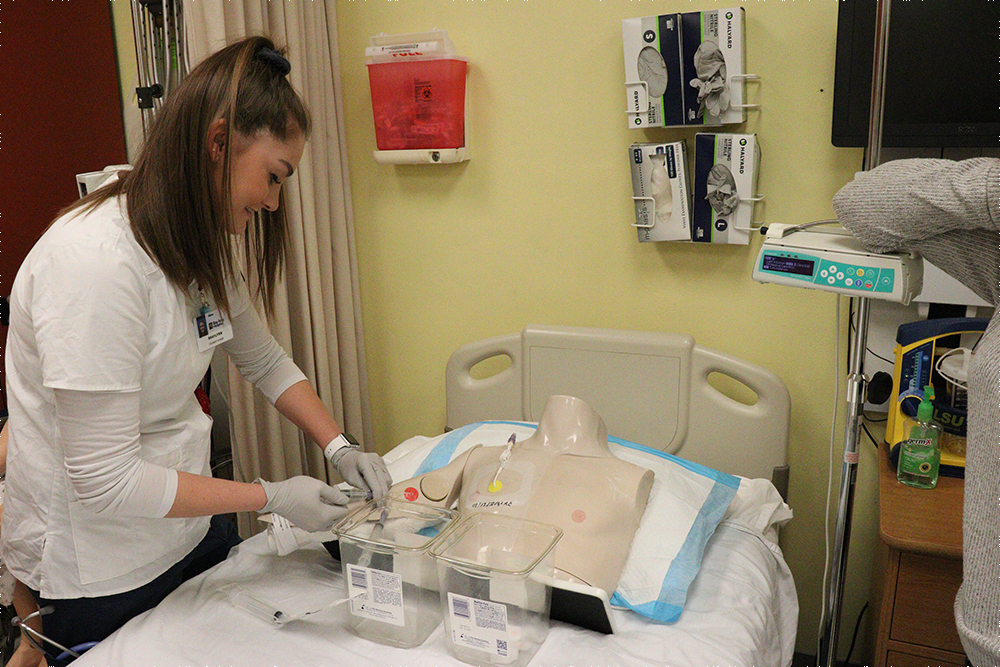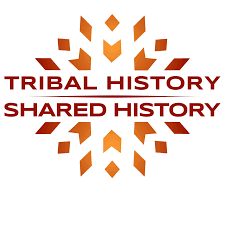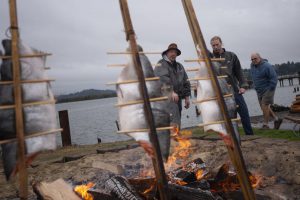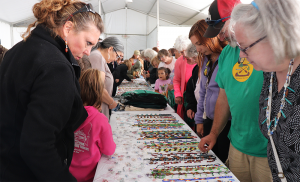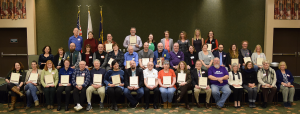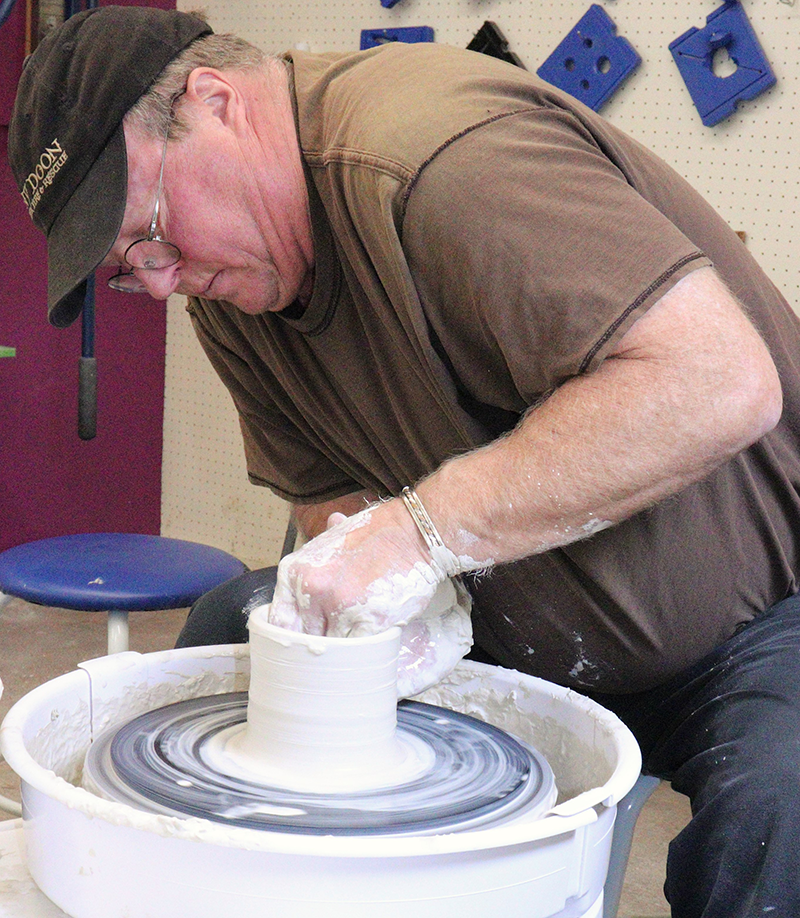
Grant benefits Coquille’s pottery posse
COQUILLE – On a late-winter Thursday, a dozen amateur potters were wrist-deep in bliss.
“It’s therapy,” said Carol Stange of Coquille.
“A moment of Zen,” said someone else. Karen Richmond of Bandon testified, “It’s the only time when nothing else happens in my brain.”
Since the 1950s, the Coquille Valley Art Center has been a sanctuary for artists of all kinds. It began with six women who wanted room to paint. Now its 96 members also work in stained glass, fiber arts, quilting, wood carving, carpentry – and pottery.
The group’s 24 potters are a growing segment, and they’re about to shift into four-wheel drive. Four pottery wheels, that is, thanks to a grant from the Coquille Tribal Community Fund.
Some background: Novice potters typically start with hand building – simply squishing clay into shape. More advanced artisans “throw” their pots on spinning platforms called wheels.
The Coquille potters currently share just two working wheels. The tribe’s $1,800 grant will double that number, joining a pair that were donated by last year by the Oregon Community Foundation.
Bonnie Stowe, the art center’s pottery boss, is targeting another grant for two more. With six, she’ll be able to teach throwing classes.
Tribal Fund Administrator Jackie Chambers, who grew up in Coquille, is pleased to see the art center thriving.
“I remember taking a pottery class there when I was young,” she said. “We made little bowls with lids, and I believe a turtle as well. We were excited and proud to display our artwork at home.”
Stowe is the spark igniting the pottery group’s recent boom. Soon after taking a grant-writing course from Southwestern Oregon Community College, she snagged a “slab roller” a hand-cranked device that extrudes uniform sheets of wet clay.
Another grant paid for a pug mill, a machine that grinds and recycles scraps. Meanwhile, Stowe and other volunteers tore out a wall to expand the formerly 580-square-foot pottery studio to more than 800 square feet.
Most of the Thursday potters are Baby Boomers craving creative outlets. After a career spent repairing diesel engines, Lee Prescott’s hands needed a retirement activity. He remembered working in clay decades ago.
“I’ve looked into getting a wheel of my own, but that’s expensive,” he said. “And if you have your own kiln ….
“Then I heard about this place and said, ‘Hey, let’s see if I might want to get back into that.’”
The price is certainly right. Each potter pays $20 a month to use the art center’s studio and kiln. With facilities expanding, Stowe plans to attract younger people to evening and weekend sessions.
Beginning potter Ophie Keene of Coquille happily recommends the studio to fellow neophytes:
“There are so many helpful people here,” she said. “Those of us who are new at it get a lot of help.”
Would-be potters, painters and other artists can find out more about the art center by calling (541) 396-3294.

